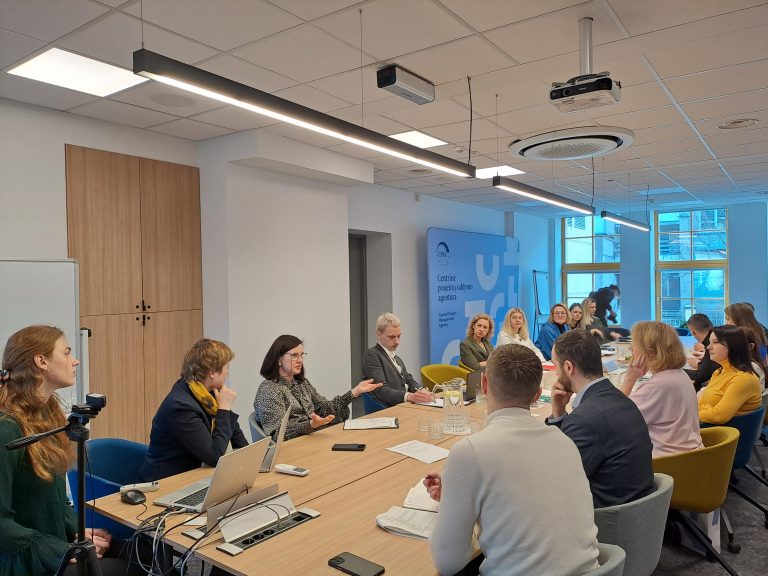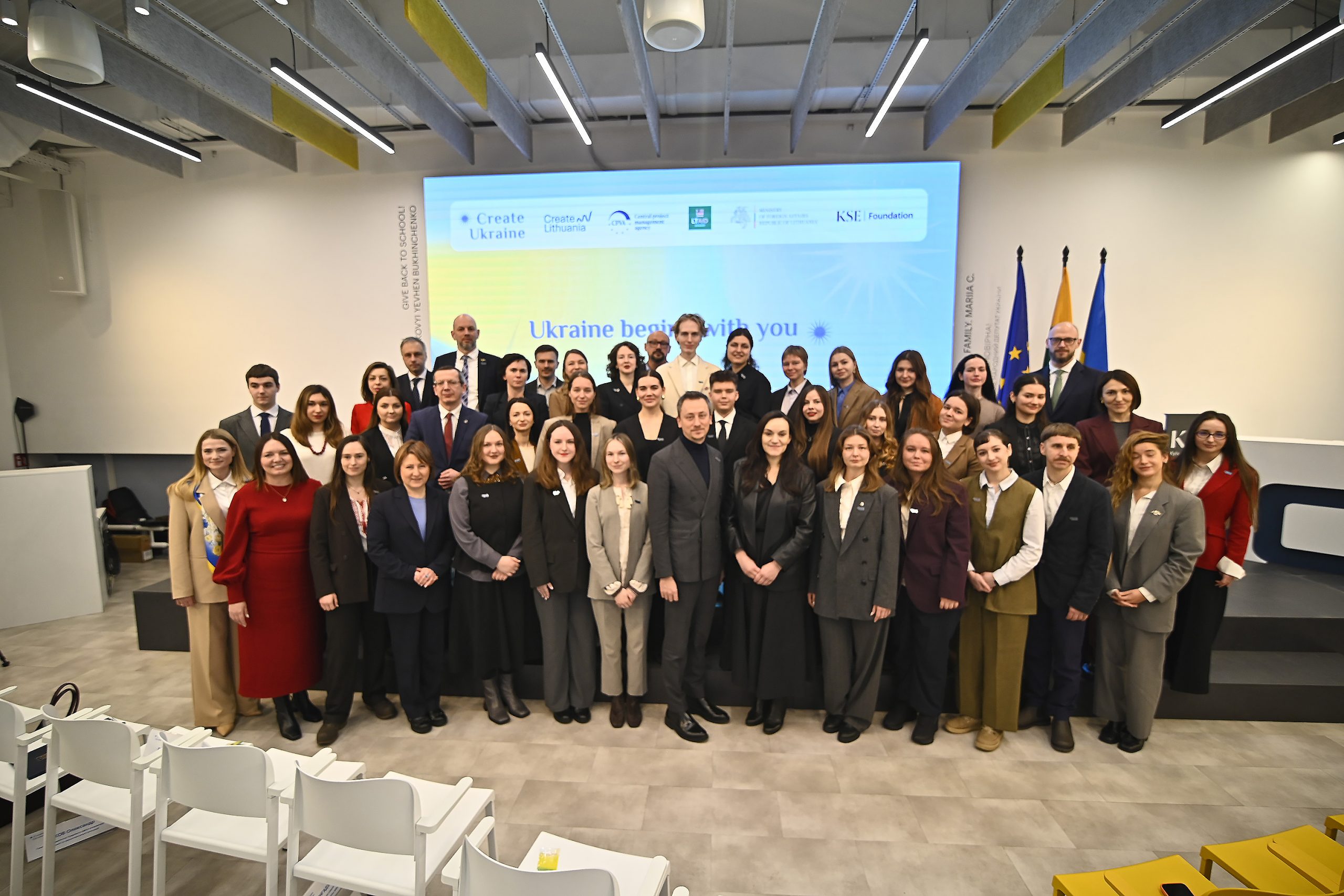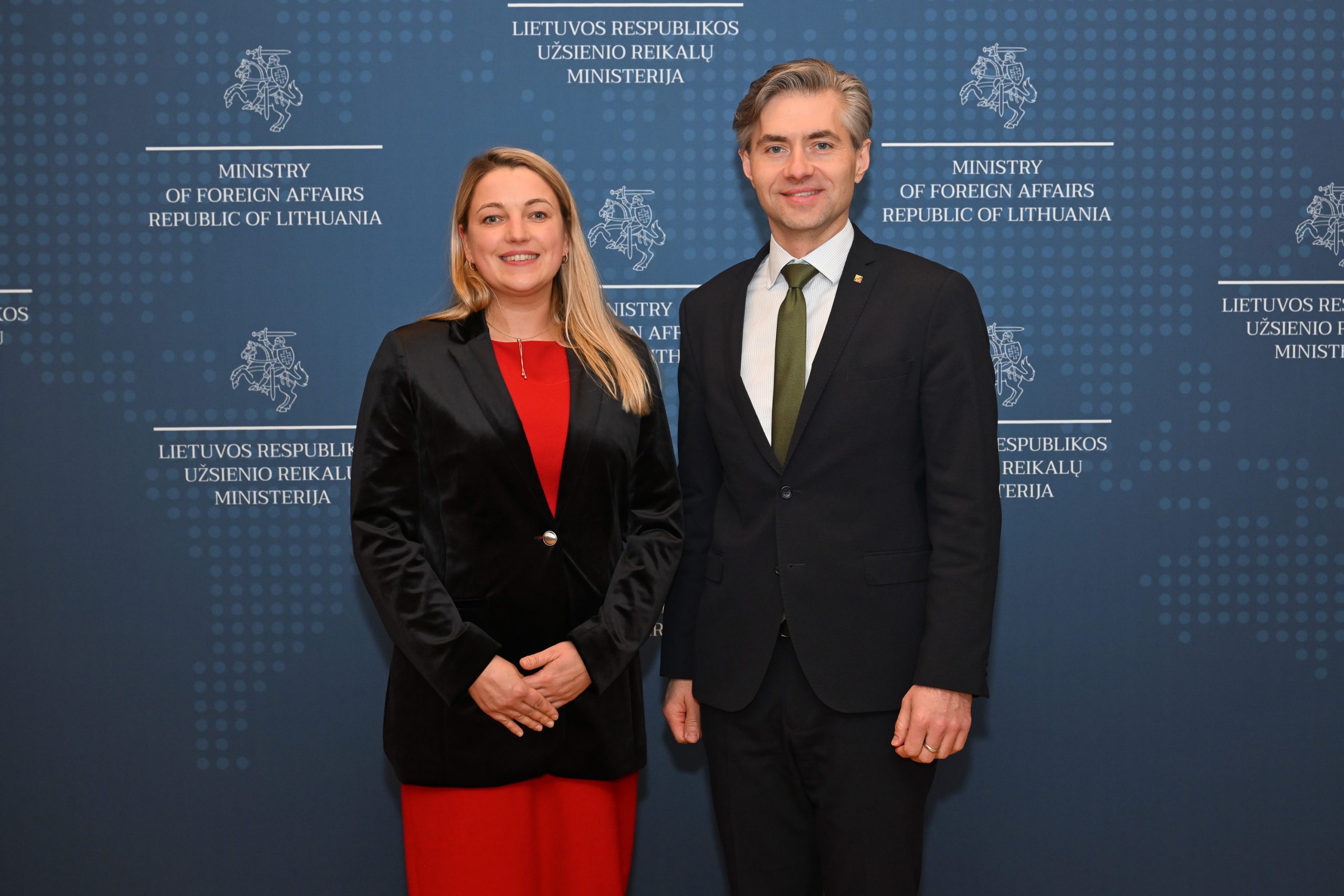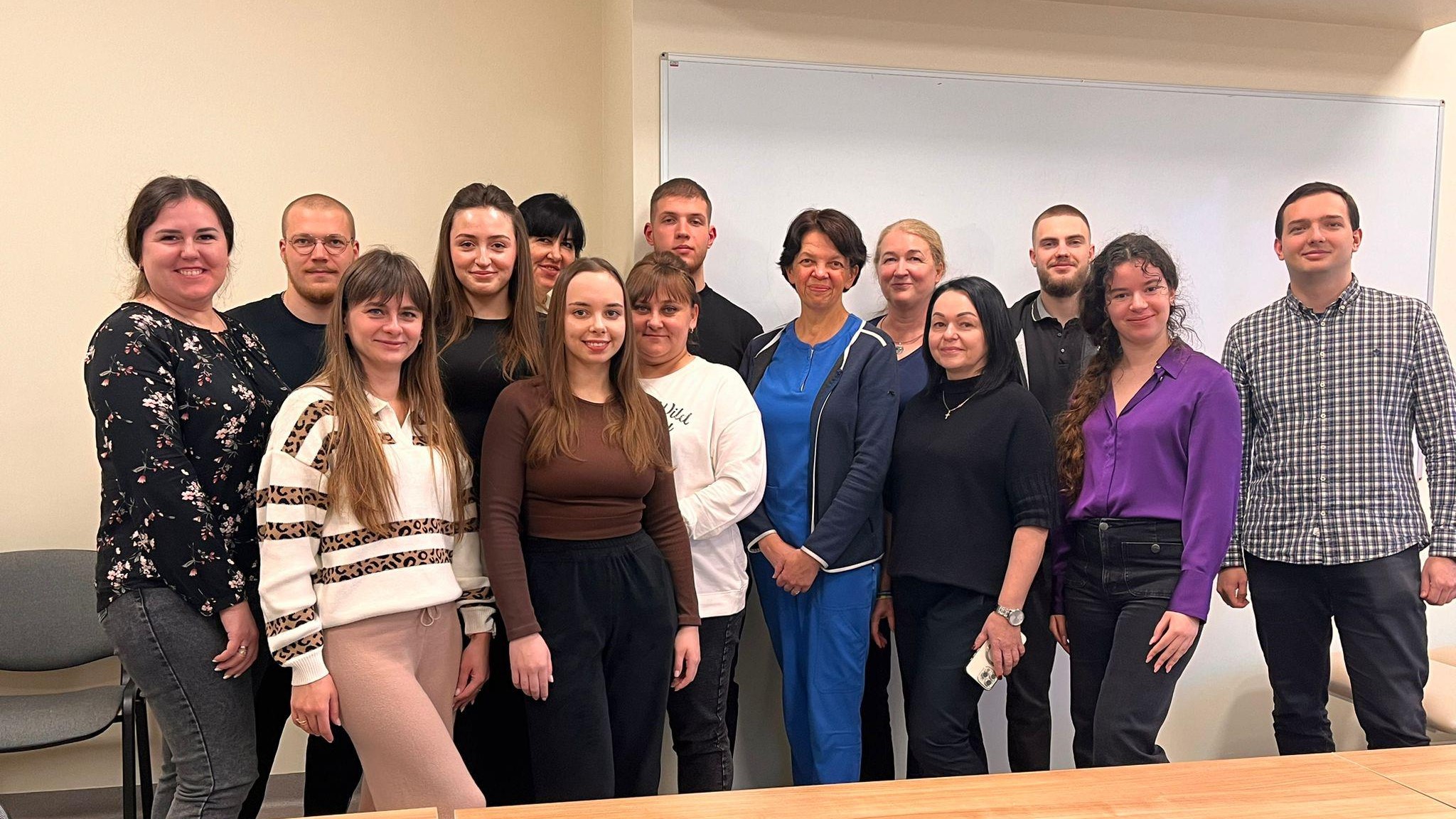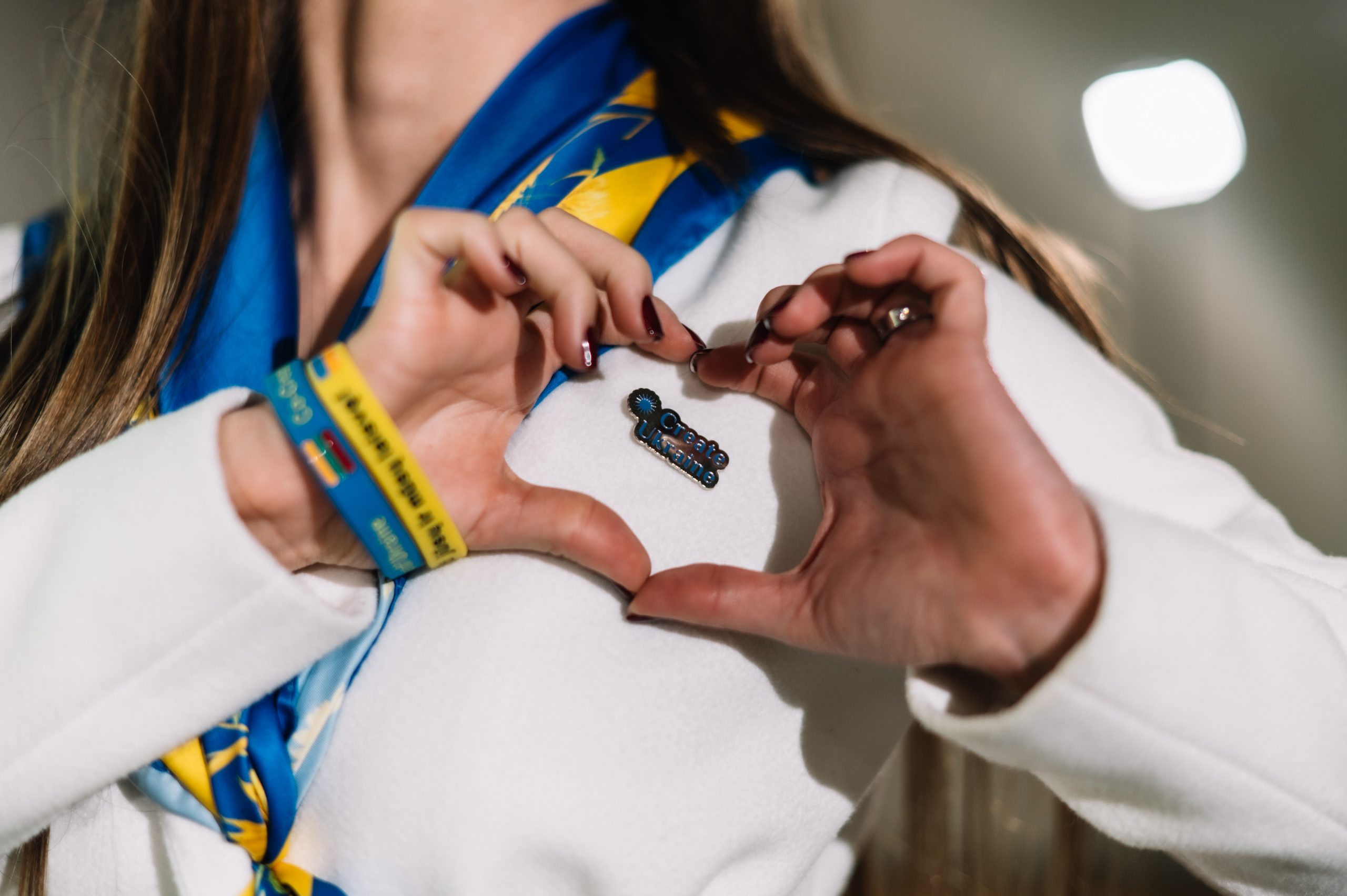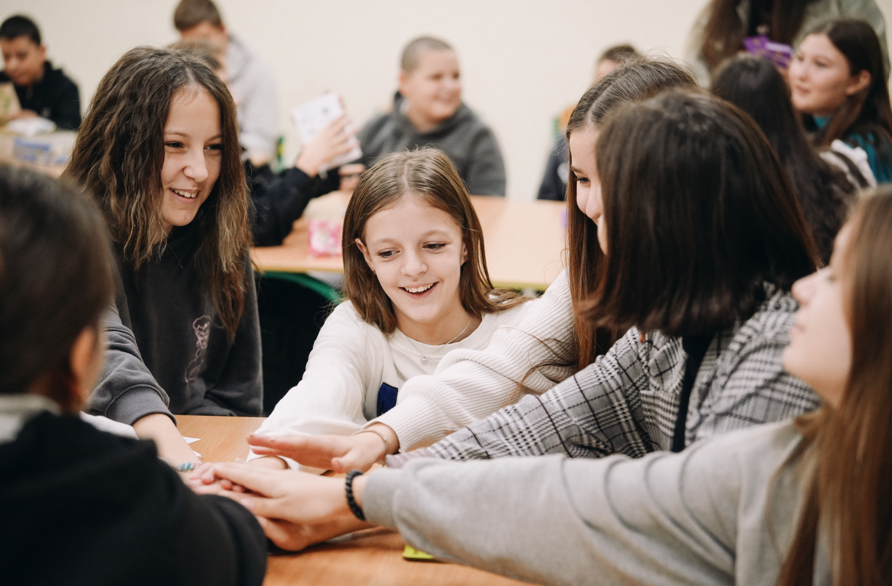A Lithuanian-led project aimed at supporting Ukraine’s Agency for Restoration in aligning with EU standards has successfully concluded. As Ukraine moves closer to EU membership, this project equips the Agency to manage international financial aid and rebuild country’s war-torn infrastructure efficiently. The focus was on enhancing the state agency’s internal control systems and public procurement, ensuring a transparent and sustainable approach to the rebuilding efforts.
Within the project Central Project Management Agency (CPVA) provided tailored methodological recommendations and practical tools and training to strengthen the agency’s capabilities in the internal control aspects and in handling complex recovery projects. Key improvement in the internal control area is the development of the basic framework for internal control itself, particularly addressing the strategic planing, monitoring and reporting.
Agency’s employees shared that the result of collaboration is the practical policy changes. The Agency and its regional offices will be monitored by the internal control unit, using indicators that meet EU standards. Advancement in procurement is the recommendations to enhance the Public Procurement Law and a collaborative effort with the Ministry of Economy to ensure alignment with international standards as well as development of the Agency’s guidelines on broader involvement of the market and on procurement of technical supervision and engineer consultant services. CPVA emphasized that capacity building is an ongoing process, and reinforcing foundational knowledge is crucial for sustaining change.
“We see this project as highly relevant. For the immense task of rebuilding their country, Ukrainians need EU and international support. By focusing on transparency and efficiency in using the funds allocated by partners, Ukrainian institutions can achieve swift, well-planned, and accountable recovery. This project allowed us to establish clear and open procedures for public procurement, internal control, , where we shared our 20 years of accumulated experience,” said Rasa Suraučienė, Deputy Director of CPVA.
On-the-job trainings were held in both Kyiv and Vilnius, bringing together experts from Lithuania and Ukraine. The visits to EU-funded infrastructure sites in Lithuania, such as the Stasys Museum, will be reflected in the comprehensive reconstruction of Yahidne in Chernihiv Oblast — a village with a tragic history. During the occupation, 200 local residents were imprisoned in the basement of the local school by Russian forces, and the village suffered severe destruction.
Roman Smiianenko, head of the Chernihiv Office of the Agency for Restoration, reflected on his learning experience:
“I was impressed by the level of EU regulation involved in these projects. Experiencing it firsthand gave me a clearer understanding of the detailed planning and structure required for successful EU integration.
It was a wake-up call to the challenges we’ll face in adapting our systems, but it also highlighted the importance of careful planning and compliance to succeed in future recovery efforts.
The visit to the Stasys Museum and the creativity center Pragiedruliai was especially inspiring for community engagement. It gave us new ideas for working with the community in Yahidne, where plans for a memorial after de-occupation have sparked tough discussions.”
The project is funded through Lithuanian Fund for Development Cooperation and Humanitarian Aid.
